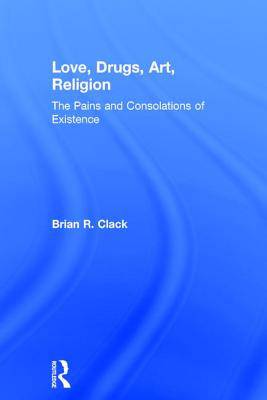
- Afhalen na 1 uur in een winkel met voorraad
- Gratis thuislevering in België vanaf € 30
- Ruim aanbod met 7 miljoen producten
- Afhalen na 1 uur in een winkel met voorraad
- Gratis thuislevering in België vanaf € 30
- Ruim aanbod met 7 miljoen producten
Zoeken
€ 195,95
+ 391 punten
Uitvoering
Omschrijving
In this original and far-reaching contribution to the philosophy of religion, Brian R. Clack examines the manner in which religious belief emerges from the turbulence and anxiety of human existence. Taking his cue from Freud's suggestion that human life is so hard to bear that it requires nothing short of cultural and psychological palliative care, Clack explores each of the 'palliative measures' Freud catalogues - intoxicants, religion, art and love - and evaluates their role in the mitigation of suffering and the provision of the assistance required for an endurable life. This examination provides the context for an investigation into the meaning and function of religious belief when considered as a palliative. Clack initially subjects religion to ferocious critique, defending the psychoanalytic judgment that religious beliefs operate as wish-fulfilling illusions, but then elaborates a revised understanding of religion, one in which comforting illusions are banished and in which religious belief faces up to reality and reconciles us both to the pains and disappointments of existence and to our nullity and inevitable annihilation. in this genuinely interdisciplinary work, Clack breaks new ground by using detailed explorations of the phenomena of drug-use, romantic love and the enjoyment of art in order to throw light on the meaning and nature of religion. This book will be vital reading for anyone concerned with the fundamental questions of religious belief, the psychoanalytic approach to culture, or simply the unavoidable existential problems lying at the very heart of human life.
Specificaties
Betrokkenen
- Auteur(s):
- Uitgeverij:
Inhoud
- Aantal bladzijden:
- 208
- Taal:
- Engels
Eigenschappen
- Productcode (EAN):
- 9781409406754
- Verschijningsdatum:
- 28/03/2014
- Uitvoering:
- Hardcover
- Formaat:
- Genaaid
- Afmetingen:
- 156 mm x 234 mm
- Gewicht:
- 467 g

Alleen bij Standaard Boekhandel
+ 391 punten op je klantenkaart van Standaard Boekhandel
Beoordelingen
We publiceren alleen reviews die voldoen aan de voorwaarden voor reviews. Bekijk onze voorwaarden voor reviews.











